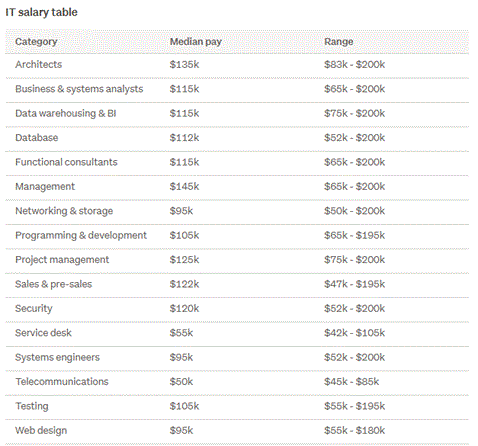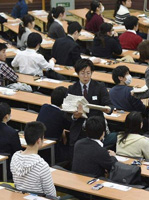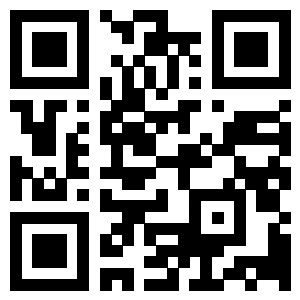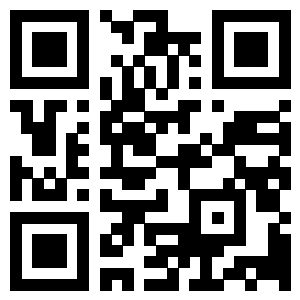2013年12月大学英语四级考试真题
2013年12月大学英语四级考试真题一定是大家非常重视的备考资料,为了帮助同学们更好的备考,小编特意对其中一套真题进行了整理,其中还包括四级听力音频,同学们赶紧来练习一下吧。
PartⅠWriting(30 minutes)
Directions:For this part, you are allowed 30 minutes to writea short essay based on the picture below. You should start your essay with abrief account of the impact of the Internet on learning and then explain whyeducation doesn’t simply mean learning to obtain information. Youshould write at least 120 words but no more than 180 words.
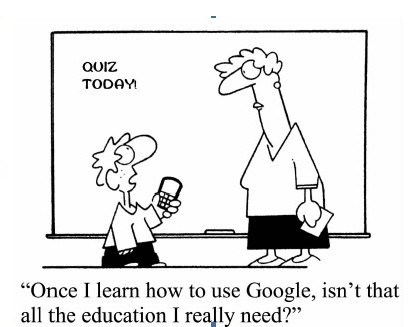
注意:此部分试题请在答题卡1上作答。
2013年12月英语四级听力真题音频点击收听
PartⅡListening Comprehension(30 minutes)
SectionA
Directions:In this section, you will hear 8 shortconversations and 2 long conversations. At the end of each conversation, one ormore questions will be asked about what was said. Both the conversation and thequestions will be spoken only once. After each question there will be a pause.During the pause, you must read the four choices marked A), B), C) and D), anddecide which is the best answer. Then mark the corresponding letter on AnswerSheet 1 with a single line through thecentre.
注意:此部分试题请在答题卡1上作答。
1. A) The woman is now working in akindergarten.
B) The man will soon start a business ofhis own.
C) The man would like to be a high schoolteacher.
D) The woman is going to major in childeducation.
2. A) The furniture has to be rearranged.C)The conference room has to be cleaned.
B) The sound equipment has to be set up.D)The video machine has to be checked.
3. A) She is exhausted.C) She cannot finishwork in time.
B) She is near-sighted.D)She cannot go straight home.
4. A) The woman is too particular aboutfood.C) The woman should order her food quickly.
B) He would rather have a meal an hourlater.D) He usually prefers ice-cream to sandwiches.
5. A) He is not a good mechanic.C) Hespends his spare time doing repairs.
B) He doesn’t keephis promises.D) He is always ready to offer help to others.
6. A) Sam has a big family to support.
B) Sam is not interested in traveling.
C) The pay offered by the travel agency istoo low.
D) The work hours in the travel agency aretoo long.
7. A) International trade.C) Financialconsulting.
B) Product development.D) Domesticretailing.
8. A) Go on a business trip.C) Make aticket reservation.
B) Look for a job in Miami.D) Take avacation.
Questions 9 to 11 are based on theconversation you have just heard.
9. A) It is located on Route 18. C) It is abeautiful little town.
B) It has an interesting museum.D) It liesseven miles east of Newton.
10. A) They are in opposite directions.C)They are quite close to each other.
B) They are fifty-fivemiles apart.D) They are a long drive from Norwalk.
11. A) They are connected by Route 7. C)They have lots of old houses.
B) They are crowded with tourists.D) Theyhave many rare plants.
Questions 12 to 15 are based on theconversation you have just heard.
12. A) Bring him up to date on the currentsituation in Milan.
B) Inform him of the arrangements for histrip in Italy.
C) Fetch the documents signed by MrGartner.
D) Accompany Mr Gartner to the Linateairport.
13. A) About 8:30.C) About 5:30.
B) About 6:30.D) About 4:15.
14. A) Mr Gartner from Milan.C) The company’s sales representative.
B) Gianni Riva at Megastar.D) Gavin fromthe Chamber of Commerce.
15. A) Travel agent.C) Secretary.
B) Business manager.D) Saleswoman.
SectionB
Directions:In this section, you will hear 3 short passages. Atthe end of each passage, you will hear some questions. Both the passage and thequestions will be spoken only once. After you hear a question, you must choosethe best answer from the four choices marked A), B), C) and D). Then mark thecorresponding letter on Answer Sheet 1 with a single line through the centre.
注意:此部分试题请在答题卡1上作答。
PassageOne
Questions16 to 19 are based on the passage you have just heard.
16. A) She had a desire to help others.C)She needed some overseas experience.
B) She wanted to find out more about it.D)She was interested in farming.
17. A) Carry out a cultural exchangeprogram.C) Learn Portuguese.
B) Work on an agricultural project.D) TeachEnglish.
18. A) She found it difficult to secure ajob in her own country.
B) She wanted to renew her contact with thePeace Corps.
C) She was invited to work as an Englishteacher.
D) She could not get the country out of hermind.
19. A) By teaching additional Englishclasses.
B) By writing stories for Americannewspapers.
C) By working part time for the PeaceCorps.
D) By doing odd jobs for localinstitutions.
PassageTwo
Questions20 to 22 are based on the passage you have just heard.
20. A) Time spent exercising.C) Time spent onleisure activities.
B) Time spent working.D) Time spent withfriends and family.
21. A) Reading.C) Eating out.
B) Surfing the Web.D) Watching TV.
22. A) Driving.C) Going to the pub.
B) Gardening.D) Visiting friends.
PassageThree
Questions23 to 25 are based on the passage you have just heard.
23. A) The car driver was trying to avoidhitting a rabbit.
B) The car driver was partly responsiblefor the accident.
C) McLaughlin was talking to his managerwhile driving.
D) McLaughlin’scarelessness resulted in the collision.
24. A) He crashed into a car parkedthere.C) He tore down the company’s main gate.
B) He knocked down several mailboxes.D) Hedid serious damage to a loaded truck.
25. A) He will lose his job.C) He will befined heavily.
B) He will have to pay damages.D) He willreceive retraining.
SectionC
Directions:In this section, you will hear a passage threetimes. When the passage is read for the first time, you should listen carefullyfor its general idea. When the passage is read for the second time, you arerequired to fill in the blanks with the exact words you have just heard.Finally, when the passage is read for the third time, you should check what youhave written.
注意:此部分试题请在答题卡1上作答。
When Captain Cook asked the chiefs inTahiti why they always ate 26, they replied, “Because it is right.” If we askAmericans why they eat with knives and forks, or why their men wear pants 27skirts, or why they may be married to only one person at a time, we are likelyto get 28 and very uninformative answers: “Because it’s right.”“Because that’s the way it’s done.”“Because it’s the 29.” Or even “I don’t know.” The reason for these and countless other patterns of socialbehavior is that they are 30 by social norms—shared rules orguidelines which prescribe the behavior that is appropriate in a givensituation. Norms 31 how people “ought” to behave under particular circumstances in a particular society.We conform (遵守) to norms so readily that we are hardly aware they 32. In fact, weare much more likely to notice 33 from norms than conformity to them. You wouldnot be surprised if a stranger tried to shake hands when you were introduced,but you might be a little 34 if they bowed, started to stroke you, or kissedyou on both 35. Yet each of these other forms of greeting is appropriate inother parts of the world. When we visit another society whose norms aredifferent, we quickly become aware that things we do this way, they do thatway.Part ⅢReading Comprehension (40 minutes)
Section A
Directions: In this section, there is apassage with ten blanks. You are required to select one word for each blankfrom a list of choices given in a word bank following the passage. Read thepassage through carefully before making your choices. Each choice in the bankis identified by a letter. Please mark the corresponding letter for each itemon Answer Sheet 2 with a single line through the centre. You may not use any ofthe words in the bank more than once.
Questions 36 to 45 are based on thefollowing passage.What does it take to be a well-trainednurse? The answer used to be two-year associate’s or four-year bachelor’sdegree programs. But as the nursing shortage 36, a growing number of schoolsand hospitals are establishing “fast-track programs” that enable collegegraduates with no nursing 37 to become registered nurses with only a year or soof 38 training.In 1991, there were only 40 fast-trackcurricula; now there are more than 200. Typical is Columbia University’s Entry to Practice program. Students earn their bachelor of sciencein nursing in a year. Those who stay on for an 39 two years can earn a master’s degree that 40 them as nurse practitioners (执业护士) orclinical nurse specialists.Many students are recent 41; others are careerswitchers. Rudy Guardron, 32, a 2004 graduate of Columbia’s program, was a premedical student in college and then worked for apharmaceutical (药物的) research company. At Columbia, he was 42 as a nurse practitioner. “I saw thatnurses were in high 43 and it looked like a really good opportunity,” he says. “Also, I didn’t want to be in school for that long.”The fast-track trend fills a need, but it’s alsocreating some 44 between newcomers and veterans. “Nurses that arestill at the bedside 45 these kids with suspicion,” says LindaPellico, who has taught nursing at Yale University for 18 years. “They wonder,how can they do it quicker?” The answer is they don’t.
注意:此部分试题请在答题卡2上作答。
A) additional
B) applied
C) demand
D) excessive
E) experienceF) explores
G) graduates
H) operations
I) promote
J) qualifiesK) specialized
L) tension
M) trained
N) view
O) worsens
SectionB
Directions:In this section, you are going to read a passagewith ten statements attached to it. Each statement contains information givenin one of the paragraphs. Identify the paragraph from which the information isderived. You may choose a paragraph more than once. Each paragraph is markedwith a letter. Answer the questions by marking the corresponding letter onAnswer Sheet 2.
The rise of the sharing economy
A) Last night 40 000 people rentedaccommodation from a service that offers 250 000 rooms in 30 000 cities in 192countries. They chose their rooms and paid for everything online. But theirbeds were provided by private individuals, rather than a hotel chain. Hosts andguests were matched up by Airbnb, a firm based in San Francisco. Since itslaunch in 2008 more than 4 million people have used it—2.5 million of them in2012 alone. It is the most prominent example of a huge new “sharing economy”, inwhich people rent beds, cars, boats and other assets directly from each other,co-ordinated via the internet.
B)You might think this is no different fromrunning a bed-and-breakfast (家庭旅店), owninga timeshare (分时度假房) or participating in a car pool. But technology has reducedtransaction costs, making sharing assets cheaper and easier than ever—andtherefore possible on a much larger scale. The big change is the availabilityof more data about people and things, which allows physical assets to bedivided and consumed as services. Before the internet, renting a surfboard, apower tool or a parking space from someone else was feasible, but was usuallymore trouble than it was worth. Now websites such as Airbnb, RelayRides andSnapGoods match up owners and renters; smartphones with GPS let people seewhere the nearest rentable car is parked; social networks provide a way tocheck up on people and build trust; and online payment systems handle thebilling.
What’s mineis yours, for a fee
C)Just as peer-to-peer businesses like eBay allow anyone to become a retailer, sharingsites let individuals act as an ad hoc (临时的) taxi service,car-hire firm or boutique hotel (精品酒店) as and when itsuits them. Just go online or download an app. The model works for items thatare expensive to buy and are widely owned by people who do not make full use ofthem. Bedrooms and cars are the most obvious examples, but you can also rentcamping spaces in Sweden, fields in Australia and washing machines in France.As advocates of the sharing economy like to put it, access trumps (胜过)ownership.
D)Rachel Botsman, the author of a book onthe subject, says the consumer peer-to-peerrental market alone is worth $26 billion. Broader definitions of the sharingeconomy include peer-to-peer lending or putting asolar panel on your roof and selling power back to the grid (电网). And itis not just individuals: the web makes it easier for companies to rent outspare offices and idle machines, too. But the core of the sharing economy ispeople renting things from each other.
E)Such “collaborative (合作的)consumption” is a good thing for several reasons. Owners make money fromunderused assets. Airbnb says hosts in San Francisco who rent out their homesdo so for an average of 58 nights a year, making $9 300. Car owners who renttheir vehicles to others using RelayRides make an average of $250 a month; somemake more than $1 000. Renters, meanwhile, pay less than they would if theybought the item themselves, or turned to a traditional provider such as a hotelor car-hire firm. And there are environmental benefits, too: renting a carwhen you need it, rather than owning one, means fewer cars are required andfewer resources must be devoted to making them.
F)For sociable souls, meeting new people bystaying in their homes is part of the charm. Curmudgeons (倔脾气的人) whoimagine that every renter is a murderer can still stay at conventional hotels.For others, the web fosters trust. As well as the background checks carried outby platform owners, online reviews and ratings are usually posted by bothparties to each transaction, which makes it easy to spot bad drivers, bathrobe-thieves and surfboard-wreckers. By usingFacebook and other social networks, participants can check each other out andidentify friends (or friends of friends) in common. An Airbnb user had herapartment trashed in 2011. But the remarkable thing is how well the systemusually works.
Peering into the future
G)The sharing economy is a little likeonline shopping, which started in America 15 years ago. At first, people wereworried about security. But having made a successful purchase from, say,Amazon, they felt safe buying elsewhere. Similarly, using Airbnb or a car-hire service for the first time encourages people to try otherofferings. Next, consider eBay. Having started out as a peer-to-peer marketplace, it is now dominated byprofessional “power sellers”(many of whom started out as ordinary eBay users). The same mayhappen with the sharing economy, which also provides new opportunities for enterprise.Some people have bought cars solely to rent them out, for example.
H)Existing rental businesses are gettinginvolved too. Avis, a car-hire firm, has a share in asharing rival. So do GM and Daimler, two carmakers. In future, companies maydevelop hybrid (混合的) models, listing excess capacity (whether vehicles, equipment oroffice space) on peer-to-peer rental sites. In thepast, new ways of doing things online have not displaced the old ways entirely.But they have often changed them. Just as internet shopping forced Wal-mart and Tesco to adapt, so online sharing will shake up transport,tourism, equipment-hire and more.
I)The main worry is regulatory uncertainty.Will room-renters be subject to hotel taxes, for example? InAmsterdam officials are using Airbnb listings to track down unlicensed hotels.In some American cities, peer-to-peertaxi services have been banned after lobbying by traditional taxi firms. Thedanger is that although some rules need to be updated to protect consumers fromharm, existing rental businesses will try to destroy competition. People whorent out rooms should pay tax, of course, but they should not be regulated likea Ritz-Carlton hotel. The lighter rules that typically govern bed-and-breakfasts are more than adequate.
J)The sharing economy is the latest exampleof the internet’s value to consumers. This emerging model is nowbig and disruptive (颠覆性的) enough for regulators and companies to have woken up to it. Thatis a sign of its immense potential. It is time to start caring about sharing.
注意:此部分试题请在答题卡2上作答。
46. Sharing items such as cars does good tothe environment.
47. Airbnb’ssuccess clearly illustrates the emergence of a huge sharing economy.
48. The major concern about the sharingeconomy is how the government regulates it.
49. The most frequently shared items arethose expensive to buy but not fully used.
50. The sharing economy has a promisingfuture.
51. Online sharing will change the waybusiness is done in transportation, travel, rentals, etc.
52. Airbnb is a website that enables ownersand renters to complete transactions online.
53. The sharing economy is likely to go theway of online shopping.
54. One advantage of sharing is that ownersearn money from renting out items not made full use of.
55. Sharing appeals to the sociable in thatthey can meet new people.Section C
Directions: There are 2 passages in thissection. Each passage is followed by some questions or unfinished statements.For each of them there are four choices marked A), B), C) and D). You shoulddecide on the best choice and mark the corresponding letter on Answer Sheet 2with a single line through the centre.
PassageOne
Questions56 to 60 are based on the following passage.
In recent years, a growing body of researchhas shown that our appetite and food intake are influenced by a large number offactors besides our biological need for energy, including our eatingenvironment and our perception of the food in front of us.Studies have shown,for instance, that eating in front of the TV (or a similar distraction) canincrease both hunger and the amount of food consumed. Even simple visual cues,like plate size and lighting, have been shown to affect portion size andconsumption.A new study suggested that our short-termmemory also may play a role in appetite. Several hours after a meal, people’s hunger levels were predicted not by how much they’d eaten but rather by how much food they’d seenin front of them—in other words, how much they remembered eating.This disparity (差异) suggeststhe memory of our previous meal may have a bigger influence on our appetitethan the actual size of the meal, says Jeffrey M. Brunstrom, a professor ofexperimental psychology at the University of Bristol.“Hunger isn’t controlled solely by the physical characteristics of a recentmeal. We have identified an independent role for memory for that meal,” Brunstromsays. “This shows that the relationship between hunger and food intake ismore complex than we thought.”These findings echo earlier research that suggests our perception offood can sometimes trick our body’s response to the fooditself. In a 2011 study, for instance, people who drank the same 380-calorie (卡路里) milkshake on two separate occasions produced different levels ofhunger-related hormones (荷尔蒙), depending on whether the shake’s labelsaid it contained 620 or 140 calories. Moreover, the participants reportedfeeling more full when they thought they’dconsumed a higher-calorie shake.What does this mean for our eatinghabits? Although it hardly seems practical to trick ourselves into eating less,the new findings do highlight the benefits of focusing on our food and avoidingTV and multitasking while eating.The so-calledmindful-eating strategies can fight distractions and help us control ourappetite, Brunstrom says.
注意:此部分试题请在答题卡2上作答。
56. What is said to be a factor affectingour appetite and food intake?
A) How we perceive the food we eat.C) Whenwe eat our meals.
B) What ingredients the food contains.D)How fast we eat our meals.
57. What would happen at meal time if youremembered eating a lot in the previous meal?
A) You would probably be more picky aboutfood.
B) You would not feel like eating the samefood.
C) You would have a good appetite.
D) You would not feel so hungry.
58. What do we learn from the 2011 study?
A) Food labels may mislead consumers intheir purchases.
B) Food labels may influence our body’s response to food.
C) Hunger levels depend on one’s consumption of calories.
D) People tend to take in a lot morecalories than necessary.
59. What does Brunstrom suggest we do tocontrol our appetite?
A) Trick ourselves into eating less.C)Concentrate on food while eating.
B) Choose food with fewer calories.D) Pickdishes of the right size.
60. What is the main idea of the passage?
A) Eating distractions often affect ourfood digestion.
B) Psychological factors influence ourhunger levels.
C) Our food intake is determined by ourbiological needs.
D) Good eating habits will contribute toour health.
PassageTwo
Questions61 to 65 are based on the following passage.
As a society we might want to rethink thetime and money spent on education, so that these resources can benefit agreater percentage of the population. Ideally, both high schools and collegescan prepare individuals for the ever-changing roles that arelikely to be expected of them.High school degrees offer far less in the way ofpreparation for work than they might, or than many other nations currentlyoffer, creating a growing skills gap in our economy. We encourage students to goon to college whether they are prepared or not, or have a clear sense ofpurpose or interest, and now have the highest college dropout rate in theworld.We might look to other countries for models of how high schools can offerbetter training, as well as the development of a work ethic (勤奋工作的美德) andthe intellectual skills needed for continued learning and development. Irecommend Harvard’s 2011 “Pathways toProsperity” report for more attention to the “forgotten half” (those whodo not go on to college) and ideas about how to address thisissue.Simultaneously, the liberal arts become more important than ever. In aknowledge economy where professional roles change rapidly and many collegestudents are preparing for positions that may not even exist yet, the skill setneeded is one that prepares them for change and continued learning.Learning toexpress ideas well in both writing and speech, knowing how to find information,and knowing how to do research are all solid background skills for a widevariety of roles, and such training is more important than any particular majorin a liberal arts college. We need to continue to value broad preparation inthinking skills that will serve for a lifetime.Students also need to learn towork independently and to make responsible decisions. The lengthening path toadulthood appears exacerbated (恶化) by parental involvement in the college years. Given the risinginvestment in college education, parental concern is not surprising, butlearning where and when to intervene (干预) will helpstudents take more ownership of the outcomes of these increasingly costlyeducations.
注意:此部分试题请在答题卡2上作答。
61. What kind of education does the authorthink is ideal?
A) It benefits the great majority of thegeneral population.
B) It prepares students to meet the futureneeds of society.
C) It encourages students to learnthroughout their lives.
D) It ensures that students’ expectations are successfully fulfilled.
62. What does the author say is the problemwith present high school education?
A) Ignoring the needs of those who don’t go to college.
B) Teaching skills to be used right aftergraduation only.
C) Giving little attention to those havingdifficulty learning.
D) Creating the highest dropout rate in thedeveloped world.
63. What characterizes a knowledge economyaccording to the passage?
A) People have to receive higher educationto qualify for a professional position.
B) Students majoring in liberal artsusually have difficulty securing a job.
C) New positions are constantly createdthat require people to keep learning.
D) Colleges find it hard to teach studentshow to cope with the changing economy.
64. What does the author think a liberalarts college should focus on?
A) Solid background knowledge in aparticular field.
B) Practical skills urgently needed incurrent society.
C) Basic skills needed for change andlifelong learning.
D) Useful thinking skills for advancedacademic research.
65. What suggestion does the author offerto parents?
A) Rethinking the value of highereducation.
B) Investing wisely in their children’s education.
C) Helping their children to bring theirtalent into full play.
D) Avoiding too much intervention in theirchildren’s education.
PartⅣTranslation(30minutes)
Directions: For this part, you are allowed 30 minutes to translate a passagefrom Chinese into English. You should write your answer on Answer Sheet 2.
许多人喜欢中餐。在中国,烹饪不仅被视为一种技能,而且也被视为一种艺术。精心准备的中餐既可口又好看。烹饪技艺和配料在中国各地差别很大。但好的烹饪都有一个共同点,总是要考虑到颜色、味道、口感和营养(nutrition)。由于食物对健康至关重要,好的厨师总是努力在谷物、肉类和蔬菜之间取得平衡,所以中餐既味美又健康。
答案
1~5 DBACB
6~10 CADBA
11~15 CBDDC
16~20 ABDBC
21~25 ACDBA
26. apart and alone
27. instead of
28. similar
29. custom
30. controlled
31. define
32. exist
33. departures
34. startled
35. cheeks
36~40 OEKAJ
41~45 GMCLN
46~50 EAICJ
51~55 HAGEF
56~60 ADBCB
61~65 BDCCD
以上就是2013年12月大学英语四级考试真题的全部内容,希望对大家有所帮助。
- 相关阅读
-
2014年新题型大学英语四级考试真题
本文主要为大家提供了2014年新题型大学英语四级的考试真题,希望对大家的学习有所帮助。
2021-10-11 -
2000年1月大学英语四级考试真题下载
新东方在线四六级精选资料 最新最全的四六级备考资料免费下载,全部都在新东方在线四六级资讯频道。更多在线辅导和名师课程
2011-09-01 -
2000年6月大学英语四级考试真题下载
新东方在线四六级精选资料 最新最全的四六级备考资料免费下载,全部都在新东方在线四六级资讯频道。更多在线辅导和名师课程
2011-09-01
TOPS
- 日排行/
- 周排行/
- 原创
- 日排行/
- 周排行/
- 原创
- 1 无锡学院2022年6月英语六级准考证打印入口|时间:6月1日
- 2 2022年6月英语四级作文热门话题及范文:教育不公平
- 3 泰州学院2022年6月英语六级准考证打印入口|时间:6月1日
- 4 吉林四级考试时间2022年上半年
- 5 2022年6月英语四级作文热门话题及范文:网络游戏
- 6 宿迁学院2022年6月英语六级准考证打印入口|时间:6月1日
- 7 2022年6月英语四级作文热门话题及范文:电力短缺
- 8 苏州城市学院2022年6月英语六级准考证打印入口|时间:6月1日
- 9 2022年6月英语四级作文热门话题及范文:手机的利弊
- 10 常熟理工学院2022年6月英语六级准考证打印入口|时间:6月1日


